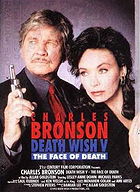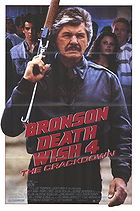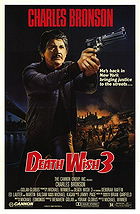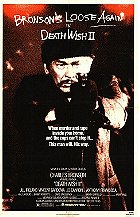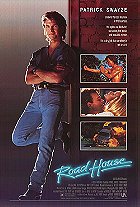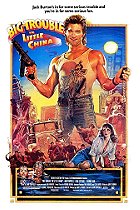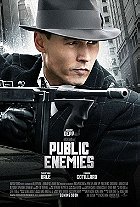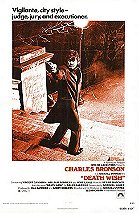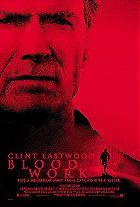The Dirty Dozen is a quintessential man's movie - a blokey salute to courage, determination and true grit. Director Robert Aldrich seizes a traditional World War II adventure tale and cleverly blends it with anti-authoritarian attitudes that were flourishing in America by the late 1960s (as the unpopular Vietnam War continued to escalate). Amazingly for such a beefy two-and-a-half-hour movie, The Dirty Dozen is nimbly paced and not a moment feels inessential. It's unable to hold a candle to the visceral war films of later decades (like Saving Private Ryan), but The Dirty Dozen remains undeniably enjoyable and captivating.
Set just before D-Day, the film involves a cynical army major named John Reisman (Marvin). As a prelude to the Normandy invasion, Reisman's superiors order him to carry out a classified mission: recruit and train twelve army prisoners (who are condemned to either death or life imprisonment), and lead them behind enemy lines to destroy a Nazi chateau. This chateau houses a variety of high-ranking German officers, and killing them could disrupt the enemies' chain of command. Reisman's twelve soldiers (known as the Dirty Dozen because they were stripped of their bathing privileges as a form of punishment) will be granted a full pardon if they return from their suicide mission alive.
The story is straightforward, but our intimate involvement with the characters carries this simple story a lot further. The Dirty Dozen fleshes out its characters as much as the story demands without resorting to meandering bonding scenes or dated montages. Even despite the fact that some of these characters are alleged murderers, they're wonderfully humanised and likeable.
The team of misfits initially detest one another, but they're brought together through their hard, laborious training. By the third act the twelve soldiers share a unique brotherhood, but this is not long-lived. The climax may not be the most spectacular combat sequence in history, but the film's brutal honesty in displaying the systematic elimination of members of the Dirty Dozen is astonishing. Normally in mainstream cinema, the heroes survive and save the day. But in The Dirty Dozen, the heroes learn a cruel reality of war: people die.
The Dirty Dozen is based on the novel of the same name by E.M. Nathanson. Neither the book nor the film has any particular historical antecedent, though it was common practice in wars to send criminals into battle with the promise of a full pardon if they survive. Those who are sticklers for detail will find a lot to nitpick about The Dirty Dozen - its depiction of the military and of military procedures is slipshod, the wargames sequence is at times absurd, and its set-up of the climax (with guards in short supply) is contrived. The biggest flaw, however, is that the Nazis are written as too conveniently stupid. Had they been that dumb in real life, the war would have been won in a matter of days. These problems don't interfere too severely with one's overall enjoyment of the film though, which is a testament to Aldrich's directorial skill.
The Dirty Dozen was created during an era before computer-generated special effects became an integral part of the moviemaking process. Therefore a significant portion of the budget for this film went towards constructing an actual mansion for the final battle. The pyrotechnics and practical effects in general are refreshing in an age of CGI-overwhelmed blockbusters. The climax itself is an impressive action sequence brimming with nail-biting intensity. It definitely lacks a certain visceral punch in terms of gunshot wounds (those who are shot just fall to the ground without any palpable injury), but it nevertheless remains an incredibly entertaining sequence...the half an hour just flies by.
While it can be perceived as fairly tame, The Dirty Dozen was edgy for its era and hit a nerve with audiences upon release in 1967. The film isn't weighed down by messages or moral lessons, but it was one of the first motion pictures in history to display the darker side of war - that the best soldiers are often societal outcasts who murder and rape. War is hell, it ain't civilised, and it brings out the savage in everyone.
Aldrich's film provides a cynical view of the army, of authority and of the mission the dozen are asked to execute (after all, why couldn't they just bomb the chateau?). The fact that the mission seems suicidal and unnecessary is deliberate, as Aldrich's primary target was military idiocy. Throughout the course of the film he even takes swipes at the death penalty and race relations. The Dirty Dozen also became the first major mainstream movie to acknowledge that atrocities took place on both sides during World War II. The film's protagonists kill plenty of Germans (some of whom are innocent civilians) in cold blood. Arriving on screens in the middle of the increasingly ostracised Vietnam War, The Dirty Dozen broke a barrier, blurring the line between the "good guys" and the "bad guys".
One of the most distinguished aspects of this ensemble action flick is the cast. Lee Marvin and Charles Bronson are major badasses, and their characters are representative of their own personalities. John Wayne was apparently considered for the part of Major Reisman but he declined in order to make The Green Berets, and Lee Marvin stepped into the role instead. Marvin is excellent; portraying Reisman as an unflinchingly authoritarian. Other standouts in the cast include John Cassavetes, who earned an Oscar nomination for Best Supporting Actor for his work as the most outspoken and toughest of Reisman's convicts. As for the rest of the cast, there's Ernest Borgnine, Jim Brown, Richard Jaeckel, George Kennedy, Trini López, Ralph Meeker, Robert Ryan, Telly Savalas, Donald Sutherland, Clint Walker, Robert Webber, Tom Busby, Ben Carruthers, Colin Maitland, Stuart Cooper and Al Mancini among others - every one of whom hit their marks.
The Dirty Dozen even influenced numerous films, ranging from made-for-television sequels to movies which employ a similar premise and modify it (Quentin Tarantino's Inglourious Basterds, Sylvester Stallone's The Expendables, and so on).
Sure, The Dirty Dozen is flawed and it's more of a macho male's fantasy than a realistic war film, but it remains an eminently watchable 145-minute cinematic experience. This is just a good old-fashioned manly movie. Not to be missed.
8.4/10
 Login
Login
 Home
Home 183 Lists
183 Lists 1674 Reviews
1674 Reviews Collections
Collections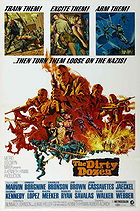
 0 comments,
0 comments, 